Happy Tuesday! Thanks for all your enthusiasm for The Dispatch’s new look and for your patience as we squash some bugs! We continue to welcome your emails (to members@thedispatch.com) if you come across features that aren’t working quite right—and especially when you find some new feature you are really into!
We’re personally very excited about this new era.
Quick Hits: Today’s Top Stories
- A prosecutor for the International Criminal Court (ICC), Karim Khan, announced on Monday that he had requested arrest warrants for both Israeli Prime Minister Benjamin Netanyahu and leaders of Hamas. Khan alleged Netanyahu and members of his government—including Defense Minister Yoav Gallant—are “causing extermination, causing starvation as a method of war, including the denial of humanitarian relief supplies, deliberately targeting civilians in conflict.” President Joe Biden condemned Khan’s request Monday, saying, “Whatever this prosecutor might imply, there is no equivalence—none—between Israel and Hamas.” Neither the U.S. nor Israel are signatories of the Rome Statute, which established the ICC. A panel of ICC judges will now consider Khan’s allegations before deciding whether to issue the warrants.
- The Defense Department announced Monday that U.S. military personnel will complete their exit from Niger by September 15. U.S. defense officials met in recent days with members of the West African country’s ruling military junta—which ousted its democratically elected president in a July 2023 coup—to discuss the withdrawal plan after the Nigerien regime ordered in March that all U.S. forces, about 1,000 personnel in total, leave the country.
- Two judges on the United Kingdom’s High Court on Monday granted WikiLeaks founder Julian Assange the right to appeal his pending extradition to the United States. Assange is wanted in the U.S. on espionage charges—including conspiring to obtain and publish classified national security data—but the British judges will now weigh whether Assange, an Australian citizen, will be granted adequate legal protection under the U.S. Constitution and the U.S. promise that prosecutors will not seek the death penalty in the case.
- Prosecutors in former President Donald Trump’s New York criminal trial rested their case on Monday after Trump’s former fixer, Michael Cohen, faced his third day of cross-examination from Trump’s defense team, which attempted to impugn Cohen’s credibility. The defense on Monday also brought its first witness, lawyer Robert Costello, who testified that Cohen told him that Trump “knew nothing” about hush-money payments Cohen made to porn star Stormy Daniels in 2016. In a tense exchange late in the day Judge Juan Merchan grew frustrated at Costello’s behavior on the stand. He instructed the jury to leave the courtroom so that he could admonish Costello, who had continued to give testimony several times after the judge had sustained an objection to his words. “If you try to stare me down one more time I will remove you from the stand,” Merchan told Costello after the jury left the room, threatening to strike his testimony.
- The Wall Street Journal reported Monday that Martin Gruenberg, the chair of the Federal Deposit Insurance Corporation (FDIC), plans to step down from his position following bipartisan pressure on him to resign. The news follows an independent investigation that found widespread sexual harassment, discrimination, and abuse at the bank regulator. Gruenberg will reportedly remain at the FDIC until the Biden administration nominates—and the Senate confirms—his successor.
The ‘Butcher’ No Longer
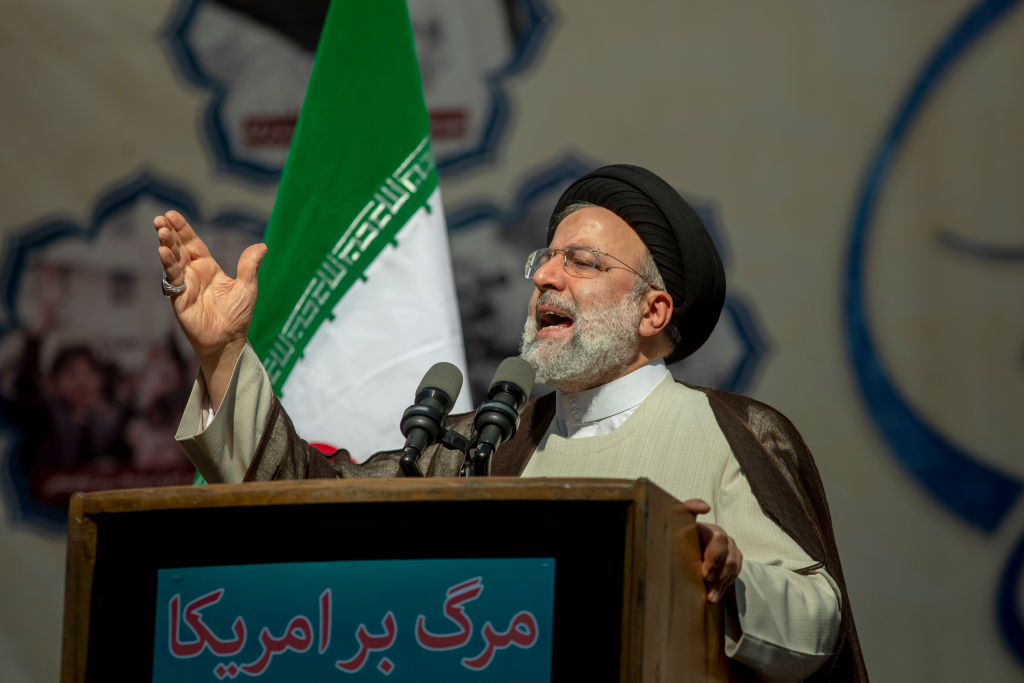
The day after their helicopter’s “hard landing” in the mountains of northwest Iran killed Iranian President Ebrahim Raisi and Foreign Minister Hossein Amir-Abdollahian Sunday, Iranian propaganda in Tehran was depicting Raisi linking up with old, murderous friends in the afterlife.
But in Iran itself, the death of the man known as the “Butcher of Tehran” could jumpstart succession battles both for the presidency and for the position of supreme leader and sow domestic instability in a regime currently engaged in domestic repression and a regional proxy war—and brazen outright attacks on Israel. Raisi—who was “elected” in sham elections in 2021—was a conservative hardliner closely aligned with Iran’s supreme leader, Ali Khamenei, and widely considered a likely successor to the 85-year-old ruler who’s been in power since 1989.
On Sunday, Raisi and the foreign minister had been on the border with Azerbaijan for a ceremony marking the opening of a dam. As thick fog rolled across the mountainous terrain, Raisi and Amir-Abdollahian boarded a Bell 212 helicopter that the U.S. sold to the country in the early 2000s. Around 1 p.m. local time on Sunday, the chopper crashed in a remote area of Iran’s East Azerbaijan province. So terrible were the conditions it was only after hours of searching on foot that search-and-rescue teams discovered the crash site early Monday morning local time and confirmed there were no survivors.
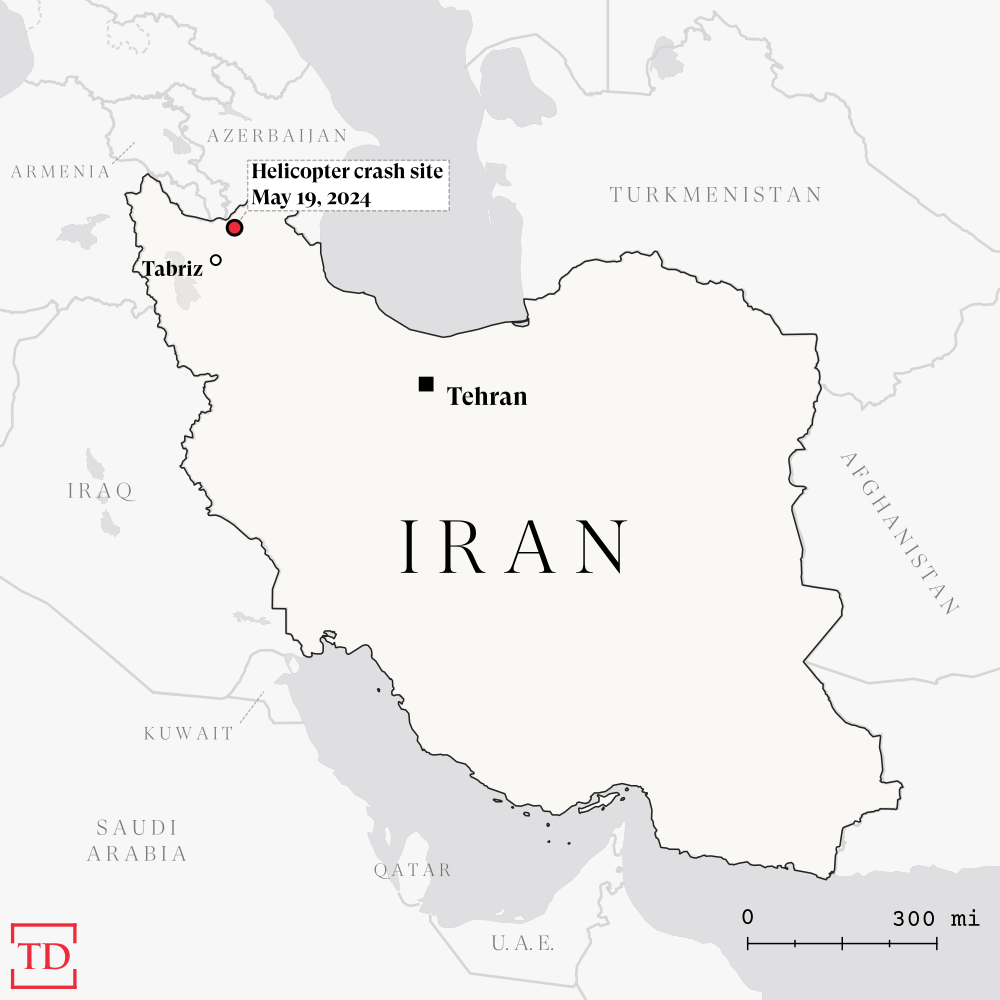
The true cause of the crash is not yet clear. Conspiracy theories—from inside job to a hit by Israeli intelligence—about the much-reviled president’s sudden demise are swirling in Iran. The official explanation has evolved from poor weather conditions to a “technical failure” in the helicopter. Former Iranian Foreign Minister Mohammad Javad Zarif tried to pass the buck on the regime’s own incompetence, claiming to state media that the crash was actually caused by U.S. sanctions on helicopter parts and would be “recorded in the black list of American crimes against the Iranian nation”—notwithstanding that Iran could easily purchase newer and more maintainable Russian helicopters, sanction-free.
Neither did “Death to America” proclivities stop Iranian officials from asking the U.S. for search-and-rescue support in the immediate aftermath of the crash—to which State Department spokesman Matthew Miller said the U.S. responded that it would do what it could, before finding there was no logistical support it could offer.
As Khamenei called for five days of national mourning for the officials who died and promised calm, international condolences rolled in. The United Nations Security Council, at the request of the Russian, Chinese, and Algerian delegations, held a moment of silence for the man behind the execution of more than 800 people last year alone. Russian President Vladimir Putin, who’s benefited from Iranian-supplied drones in his war in Ukraine, called the late president “a true friend of Russia.”
The Biden administration also chimed in. “The United States expresses its official condolences for the death of Iranian President Ebrahim Raisi, Foreign Minister Amir-Abdollahian, and other members of their delegation in a helicopter crash in northwest Iran,” Miller said Monday. “As Iran selects a new president, we reaffirm our support for the Iranian people and their struggle for human rights and fundamental freedoms.” Later on Monday, National Security Council spokesman John Kirby called issuing the condolence “typical practice,” but added that Raisi “was a man who had a lot of blood on his hands.”
As president, Raisi had wide latitude to conduct domestic affairs, even if the final say lay with the supreme leader. “He was definitely not a figurehead, but he was not the ultimate authority, either,” Richard Goldberg, senior adviser at the Foundation for Defense of Democracies who formerly worked on Iran issues on the National Security Council during the Trump administration, told TMD. “To the extent that the day-to-day of actual governing takes place, and the running of the country takes place, the president, the Office of the President, all of his vice presidents, do play very key roles in keeping the wheels turning.”
And as Charlotte writes in an obituary of Raisi on the site today, that command and control often consisted of denying the Iranian people their human rights and fundamental freedoms:
Indeed, it was Raisi’s cutthroat reputation that endeared him to Islamic Republic leaders increasingly beset with domestic upheaval. The regime—which faced mass anti-government protests in 2018, 2019, and 2020—likely hoped the new president’s notoriety would have a chilling effect on future dissent.
Not so. In 2022, morality police arrested 22-year-old Mahsa Amini for alleged hijab violations. Her eventual death at the hands of Iranian authorities set into motion the most significant wave of demonstrations in the country’s recent history, described by many as another revolution. Under Raisi’s leadership, the “Women, Life, Freedom” movement was met with a swift, severe government crackdown. Over the course of 2022 and 2023, security officials killed some 550 people and arrested more than 22,000 others.
The battle to replace Raisi could get messy. The Iranian government has already announced that Mohammad Mokhber—the first of 12 vice presidents and a hardline functionary—will step in as acting president. The constitution requires elections within 50 days of a president’s death in office, and on Monday, Iranian authorities selected June 28 for an election—though the Guardian Council, members of which are appointed by Khamenei and which approves presidential candidates, still have to greenlight the date.
A hurried—if farcical—election “opens the door for domestic instabilities, claims of illegitimacy, and [the Iranian people] back onto the street,” said Goldberg. “You’ll also have the actual jockeying for power and control within the regime.”
And there aren’t necessarily obvious replacements for the politically savvy Raisi. “It will be challenging to find a hardliner who shares Raisi’s history, experience, political networks, and relative youth,” said Norm Roule, the former national intelligence manager for Iran and 35-year veteran of the CIA, in an interview with The Cipher Brief. “Ironically, this difficulty is partly the result of Raisi ensuring that no potential rival developed a power center or network capable of becoming a challenge to him. The ideological ‘purification’ campaign of recent months may not strengthen but instead undermine the regime.”
Nevertheless, “It is doubtful that the regime would allow anyone but a trusted actor to fill Raisi’s shoes during this time of transition,” he added. “It would be hard not to view the coming weeks as a preview of what will happen when Khamenei dies.”
And it may not portend good things since Raisi’s demise also makes selecting Khamenei’s successor more chaotic and potentially destabilizing for the regime. Besides Raisi, the leading contender to take the current ayatollah’s place as Iran’s supreme leader is Khamenei’s son, Mojtaba. That’s a tough look for a regime that was founded after overthrowing a hereditary monarchy and calls itself, at least in name, an “Islamic Republic.” Still, the powerful Islamic Revolutionary Guard Corps (IRGC) favors the younger Khamenei.
Even as the Iranian regime is navel-gazing, its increasingly aggressive foreign policy—including propping up proxies across the Middle East with their sights trained on Israel—and ever-developing nuclear program is likely to continue apace. “Losing Raisi can certainly create an imbalance in the force, but it won’t disrupt the overall ability of the regime to continue to execute its foreign policy and national security,” Goldberg told TMD.
But for some Iranians, the internal jockeying and geopolitics are irrelevant. “Who cares,” Reza, a shopkeeper in the Iranian city of Yazd, told Reuters of Raisi’s death. “One hardliner dies, another takes over and our misery continues. We’re too busy with economic and social issues to worry about such news.”
Worth Your Time
- The National Association of Realtors (NAR) doesn’t just know how to sell homes and buildings: It also sells a good time to the rich and politically influential, Maggie Severs and Byron Tau reported for NOTUS. “Realtors are a dominant force in American life, even if you only ever think about them when you’re buying or selling a home,” they wrote. “NAR is flush with cash, with an annual revenue of more than $300 million—bigger than the Chamber of Commerce and the Business Roundtable combined. It is the second-largest spender on federal lobbying in the United States and doles out tens of millions of dollars on elections each cycle.” But that may be about to end. “To hear critics tell it, NAR and its more than 1,000 state and local affiliates have exploited their influence over real estate transactions to gain more money, which they spent building a gigantic political influence apparatus that secured their status. But behind the partying and spending, NAR has been facing existential risk since the advent of the internet. And over the last two years, it has started to come crashing down.”
- Ed Dwight, the first black man to train as an astronaut, spent his life preparing for a call from NASA that never came. But this weekend, at 90 years old, he became the oldest person to go to space. “An astronaut candidate in the early 1960s, he became a celebrity in the Black community, landing on the covers of Jet and Ebony magazines as a trailblazing pilot,” Joseph De Avila wrote for the Wall Street Journal. “But the National Aeronautics and Space Administration ultimately never selected him. He gave up the dream and later became a renowned sculptor focusing on Black history. … [On Sunday] Dwight [was] one of six people scheduled to board the latest Blue Origin flight, the first with humans aboard in nearly two years. … ‘My hope was just getting into space in any kind of way, but they weren’t going to let that happen,’ Dwight said in ‘The Space Race.’ ‘Had all the things been equal, I would have made it to the moon. I had the capabilities, and I was not given that opportunity.’”
Presented Without Comment
New York Times: Trump Posts Video Online With Newspaper Headline About ‘Unified Reich’
Also Presented Without Comment
New York Post: Biden Says Maimed American Hersh Goldberg-Polin is ‘Here With Us Today’ at Rose Garden Party—Despite Still Being Held by Hamas
“My administration is working around the clock to free the remaining hostages, just as we have freed hostages already. And here with us today is Hersh Goldberg-Polin,” Biden, 81, announced at the Rose Garden party. A moment later, the president added, “He is not here with us. But he is still being held by Hamas.”
Also Also Presented Without Comment
Variety: OpenAI Suspends ChatGPT Voice That Sounds Like Scarlett Johansson in ‘Her’
In the Zeitgeist
The first trailer for Kevin Costner’s four-part Western epic Horizon: An American Saga predated In the Zeitgeist, so we thought we’d highlight the release of the second trailer.
In a GQ profile of Costner published Monday, the actor—star, director, and co-writer on the project—explains how he’s been trying to make the film since 1988 and has invested $38 million of his own money, even mortgaging property he plans to build his last family home on:
“I thought the window was closing on me being able to be an effective part in that movie,” Costner said. “And so I basically burned my ships.” He went on, trying to make sure I understood: “Like Cortés, we’re f***ing here. I’m going to make this. And I mortgaged property. Now do you get it?”
Toeing the Company Line
- It’s Tuesday, which means Dispatch Live (🔒) returns tonight at 8 p.m. ET/5 p.m. PT! Declan and the team will discuss the news of the week and, of course, take plenty of viewer questions! Keep an eye out for an email later today with information on how to tune in.
- In the newsletters: Kevin reprised (🔒) his role as moderator in the upcoming presidential debate, the Dispatch Politics crew reported on RFK Jr.’s campaign from a rally in Colorado, and Nick reluctantly made the case for Nikki Haley to be Trump’s vice president.
- On the podcasts: Sarah and David discuss the Alito upside-down flag controversy, judicial ethics, executive privilege, the “tacos are sandwiches” debate, and more on Advisory Opinions.
- On the site: Charlotte examines the dark legacy of Iran’s late president, Ebrahim Raisi, and Chris explains both parties’ immigration policy gambits.
Let Us Know
Do you expect to see significant political instability in Iran or even the collapse of the regime?


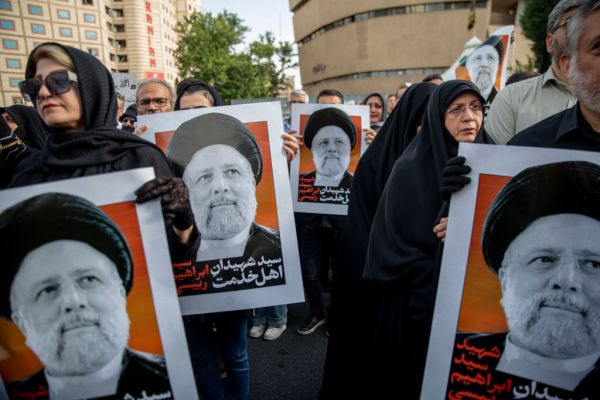

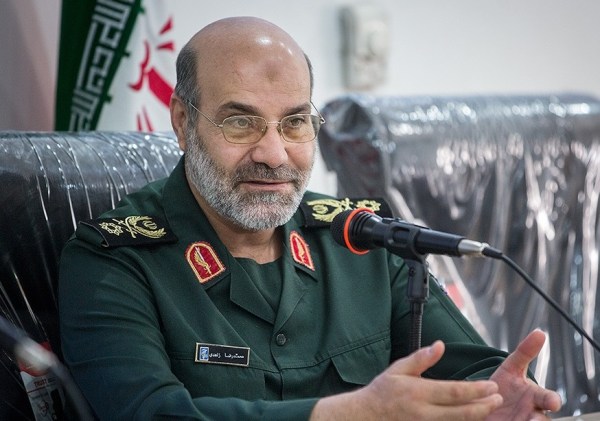

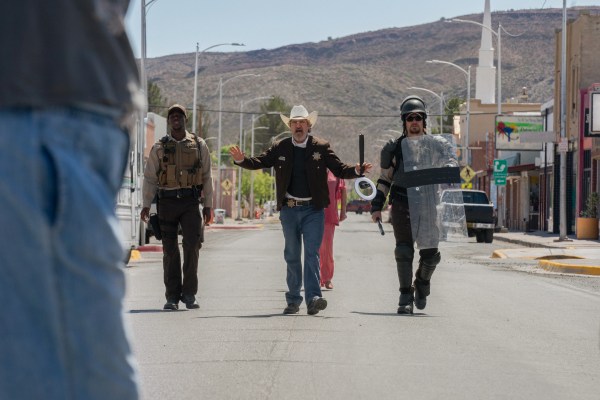

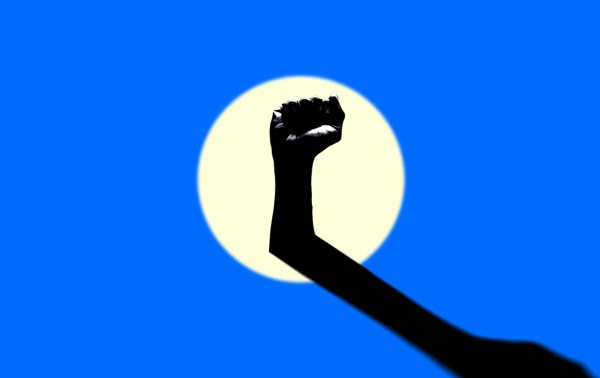

Please note that we at The Dispatch hold ourselves, our work, and our commenters to a higher standard than other places on the internet. We welcome comments that foster genuine debate or discussion—including comments critical of us or our work—but responses that include ad hominem attacks on fellow Dispatch members or are intended to stoke fear and anger may be moderated.
With your membership, you only have the ability to comment on The Morning Dispatch articles. Consider upgrading to join the conversation everywhere.